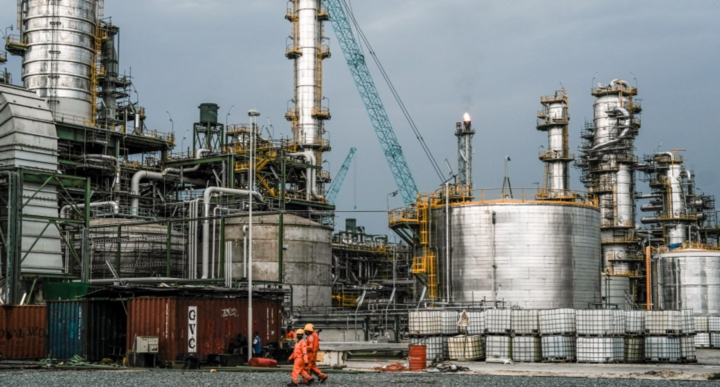The International Energy Agency (IEA) recently released its October 2023 World Energy Outlook report, shedding light on the significant role the Dangote refinery could play in shaping the future of oil demand and production, particularly in African nations heavily reliant on imported refined energy products.
In the report, the IEA highlights a crucial point: African countries have, for a considerable period, been dependent on imports of refined energy products. However, with the emergence of the Dangote refinery, boasting a colossal daily production capacity of 650,000 barrels, a glimmer of hope is ignited for the continent’s energy landscape.
The excerpt from the IEA’s World Energy Outlook succinctly articulates this pivotal juncture: “African countries rely on imports of refined products, although a new 650,000 barrels per day refinery in Nigeria helps meet incremental oil product demand growth in the next decade.” This affirmation underscores the potential transformation that the Dangote refinery brings to the African energy market. No longer will the continent remain as reliant on foreign imports for refined products.

Presently, many African nations find themselves at the mercy of imported refined energy products. The Dangote refinery stands as a game-changer, poised to alleviate this dependency, while also addressing the burgeoning demand for oil products. This development assumes paramount importance, especially considering the current scenario in Africa, where approximately 7 million barrels of oil are produced daily, with around 40% of this production being earmarked for export.
The IEA’s World Energy Outlook doesn’t just shed light on the refinery’s potential but also underlines the impending challenges facing the African oil landscape. It elucidates the fact that oil production in Africa is on a trajectory towards decline, primarily due to the absence of substantial new oil discoveries that can offset the decreases witnessed in existing oil-producing fields. In light of this, the significance of establishing efficient local refining capacity, like the Dangote refinery, becomes evident. It is a pivotal factor in not only meeting the soaring demand for oil products but also in mitigating Africa’s dependence on imports.
A point of concern arises, however, as the Dangote refinery, which was ceremoniously commissioned earlier this year, is yet to initiate its operations, according to insiders familiar with the matter. This delay has come as a surprise, given the earlier assurance made by Dangote Group Executive Director Devakumar Edwin in September 2023 that the refinery would commence diesel and aviation fuel production by October. Yet, there are now indications that these plans might not materialize as initially expected.
The exact reasons for these potential delays remain undisclosed, enveloping the situation in a cloud of uncertainty. At the time of compiling this report, attempts to reach the management team at Dangote Refinery have proven unsuccessful. The shroud of uncertainty looming over the situation raises several pertinent questions, primarily about the refinery’s operational timeline and the contributing factors that could be causing these setbacks.
This episode of uncertainty further underscores the intricacies and challenges that underpin the establishment and initiation of operations at such a massive industrial facility. The Dangote refinery is no ordinary venture; it’s an ambitious, state-of-the-art complex designed to process 100% Nigerian crude oil. Its adaptability, however, extends far beyond this primary objective.
The design and engineering of the Dangote refinery set it apart as a facility capable of processing a diverse range of crude oil varieties. It can efficiently handle African crudes, various Middle Eastern varieties, and even U.S. Light Tight Oil. This adaptability enhances its significance on a global scale, rendering it a formidable player in the oil refining industry.
In conclusion, the IEA’s World Energy Outlook report for October 2023 brings into focus the critical role that the Dangote refinery could play in the future of oil demand and production in Africa. While the delay in its operational launch raises questions, the potential it holds to reshape the energy landscape of the continent cannot be understated. Africa, long dependent on imported refined energy products, may see a turning point with the refinery’s impending operations, which can help meet the continent’s growing demand for oil products and reduce import dependence. As the Dangote refinery stands on the threshold of commencing operations, it symbolizes hope for African nations striving for energy self-sufficiency and marks a substantial stride toward a more robust and resilient energy sector in the region.
Support InfoStride News' Credible Journalism: Only credible journalism can guarantee a fair, accountable and transparent society, including democracy and government. It involves a lot of efforts and money. We need your support. Click here to Donate
